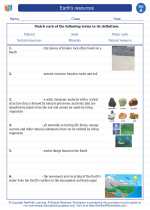Deposition
Deposition is the process by which sediments, soil, and rocks are added to a landform or landmass. It is one of the key processes in the geological cycle and plays a crucial role in shaping the Earth's surface.
How Does Deposition Occur?
Deposition occurs when the agents of erosion (such as water, wind, ice, or gravity) lose their energy and drop the sediments they have been carrying. This can happen when a river slows down as it enters a larger body of water, when the wind stops blowing, or when a glacier melts, among other scenarios.
Examples of Deposition
Some common examples of deposition include the formation of river deltas, where sediment carried by a river is deposited at its mouth, and the accumulation of sand dunes in deserts due to the wind depositing sand particles in specific areas.
Study Guide for Deposition
- What is deposition?
- How does deposition occur?
- What are some examples of deposition?
- How does deposition contribute to the shaping of the Earth's surface?
- What are the main agents of deposition?
Understanding the process of deposition is essential for grasping the formation of various landforms and the overall geological processes that shape our planet.
[Deposition] Related Worksheets and Study Guides:
.◂Science Worksheets and Study Guides First Grade. Earth's resources
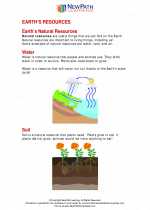
 Worksheet/Answer key
Worksheet/Answer key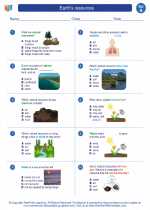
 Worksheet/Answer key
Worksheet/Answer key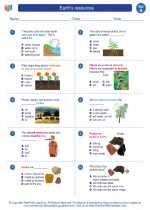
 Worksheet/Answer key
Worksheet/Answer key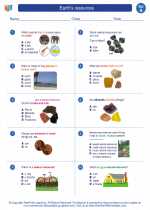
 Vocabulary/Answer key
Vocabulary/Answer key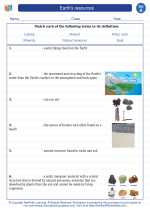
 Vocabulary/Answer key
Vocabulary/Answer key